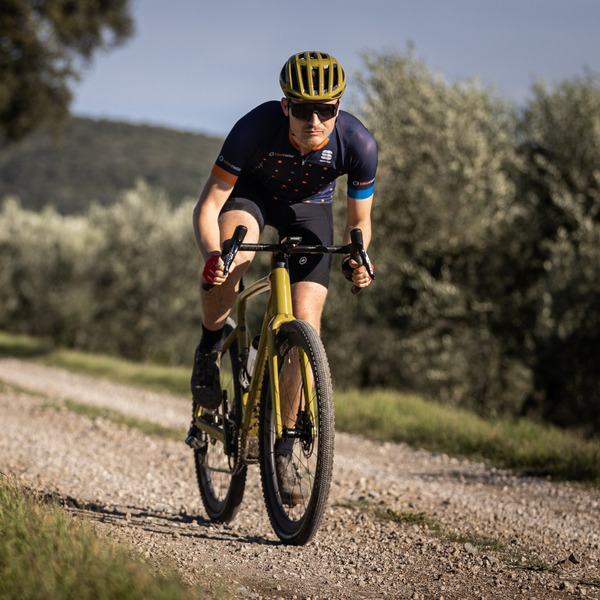The Merida Big.Nine 10k cross-country race bike is built to prioritise “maximum speed”, by relying on a rigid seatpost, flat handlebars and fast-rolling tyres, paired with a 100mm suspension fork and 29in wheels.
That said, don’t fret if your rides are more gnarly or you’d just rather have a more capable bike, because Merida has concurrently released the Big.Nine TR.
This trail-oriented alternative sports an extra 20mm of suspension travel and switches to riser bars, a dropper post and a more aggressive front tyre.
A lean, mean XC machine
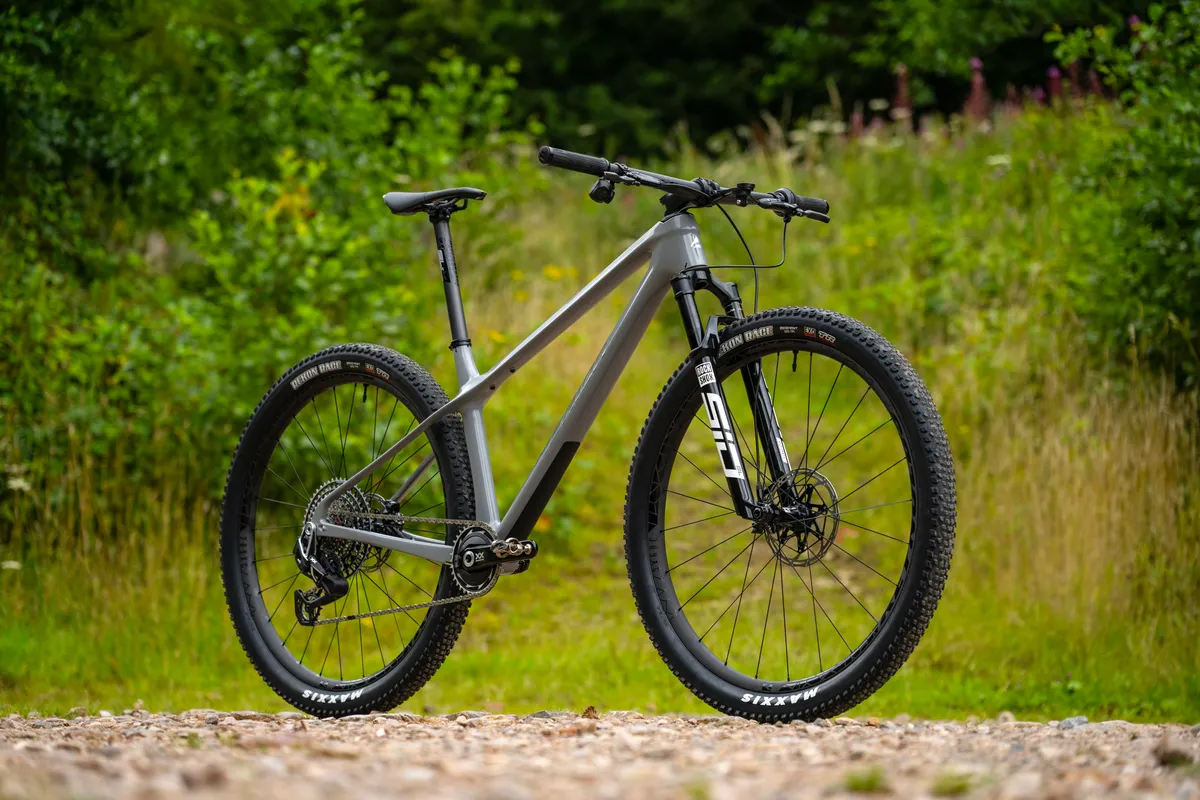
Merida uses what it calls its NanoMatrix carbon on the Big.Nine. The brand says it adds “extremely tiny, nano-scale particles to the resin that binds the individual carbon fibres together” during manufacture.
This is claimed to improve the carbon fibre’s resistance to damage by up to 40 per cent.
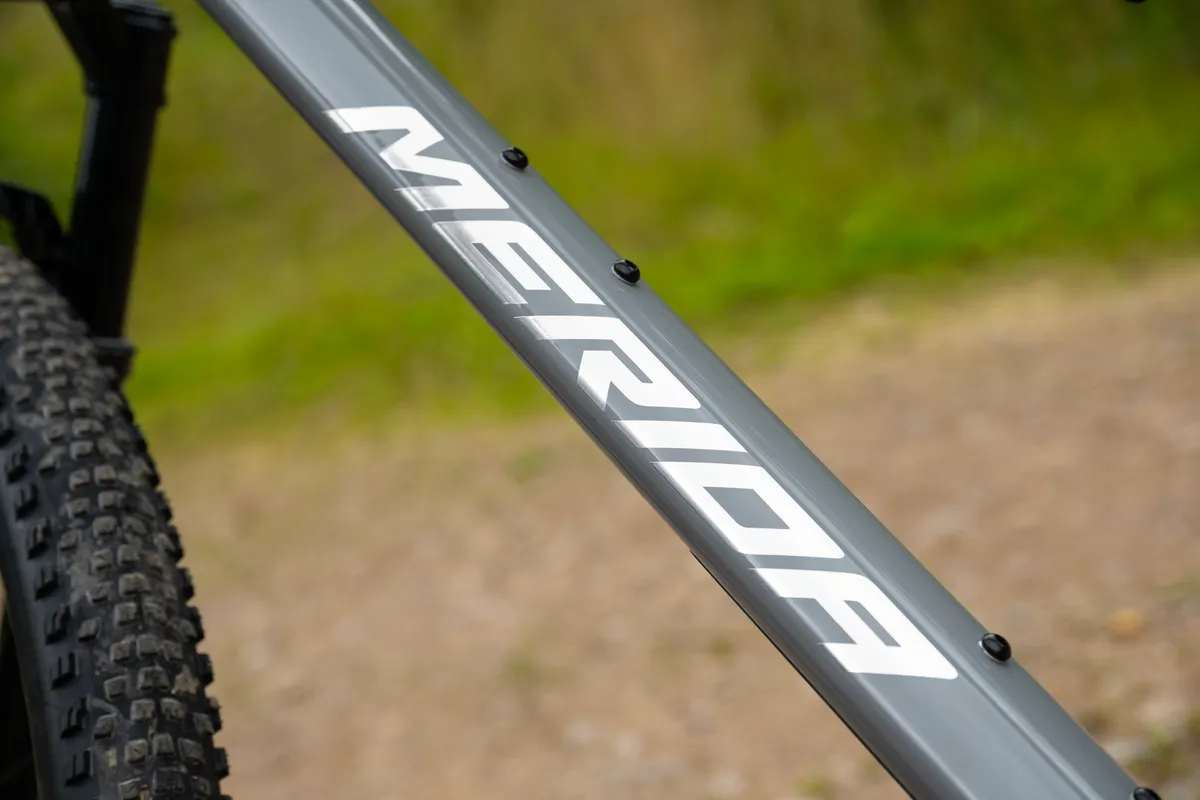
The frame is available in three configurations – an aluminium option and two carbon variants. The top-of-the-line CF5 carbon frame featured on this bike weighs a claimed 880g in a size medium, with the more affordable CF3 weighing a claimed 1,100g.
Merida says it has also focused on improving comfort. This is achieved primarily by speccing wider 2.4in mountain bike tyres and the fact the standover height is much lower than its predecessor, meaning there’s more seatpost exposed to flex.
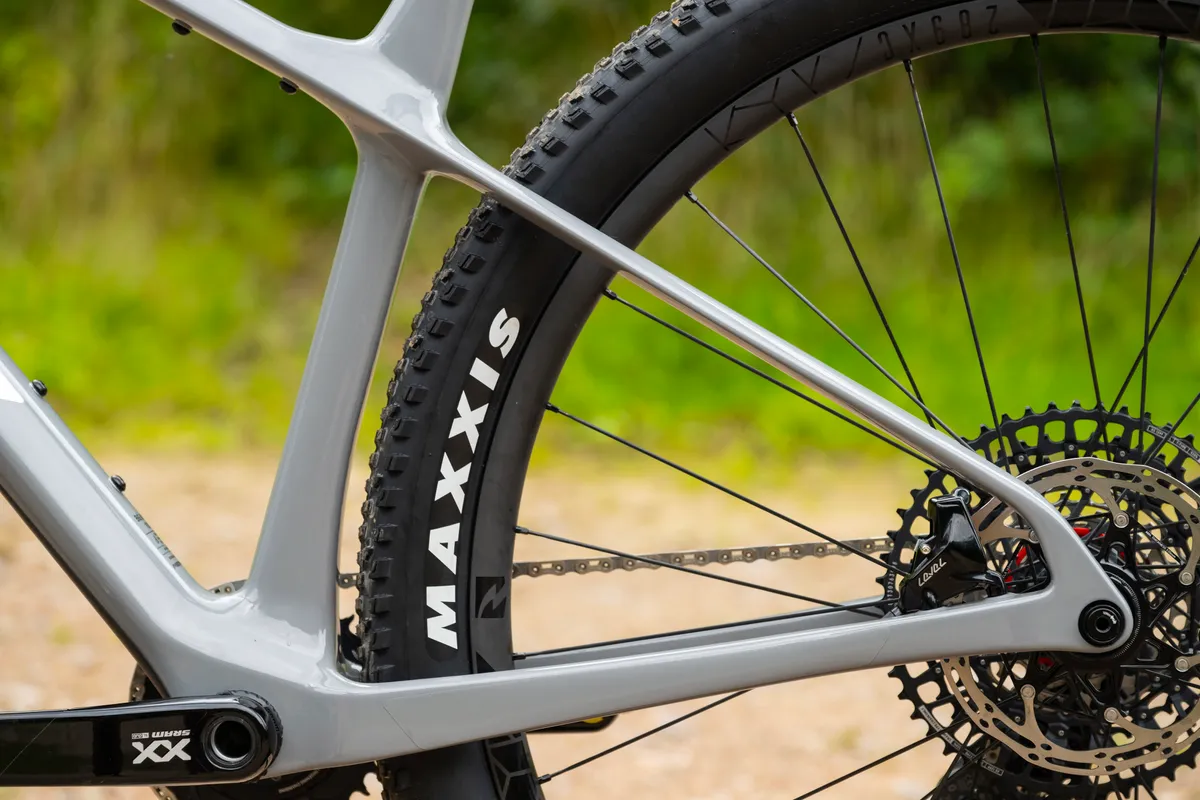
Additionally, the Big.Nine uses a flexstay, which is commonplace on many of the best mountain bikes, to boost rear-end comfort.
Merida has ditched the BB92 press-fit bottom bracket standard and moved to a BSA threaded variant instead.
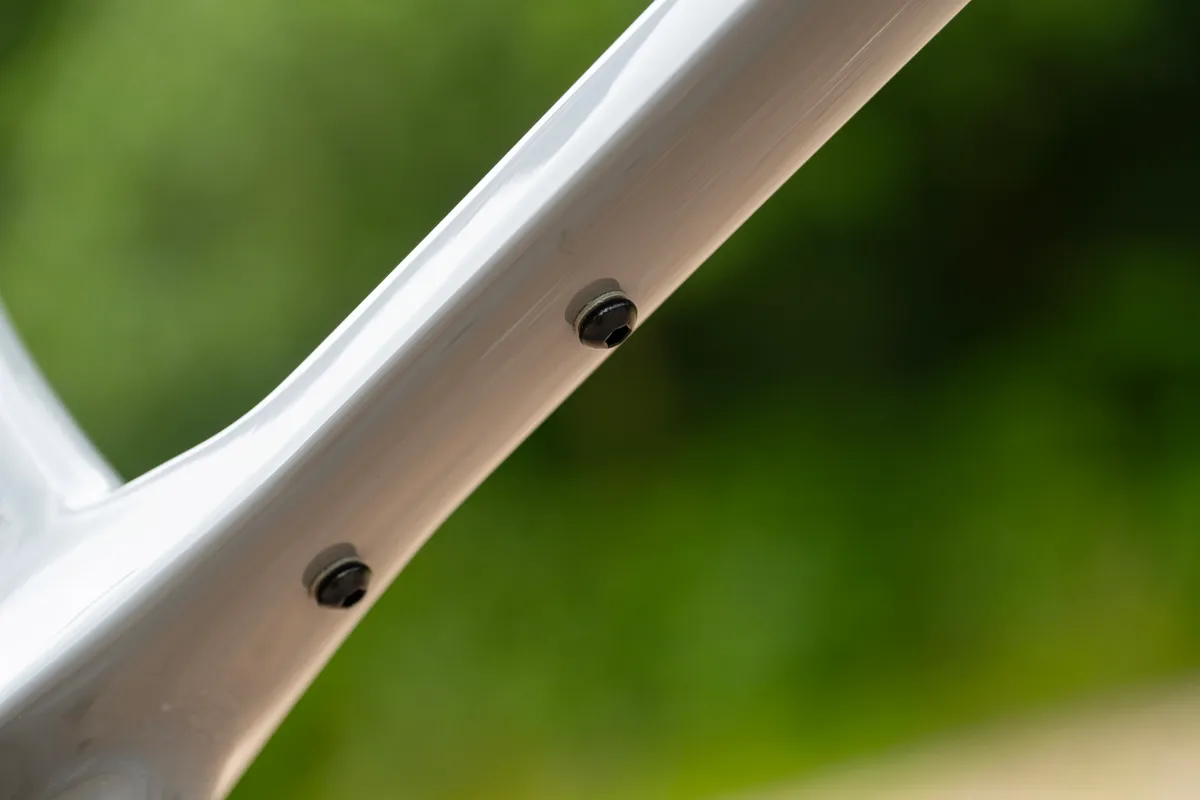
The Big.Nine relies on a SRAM UDH and accepts a 30.9mm-diameter seatpost.
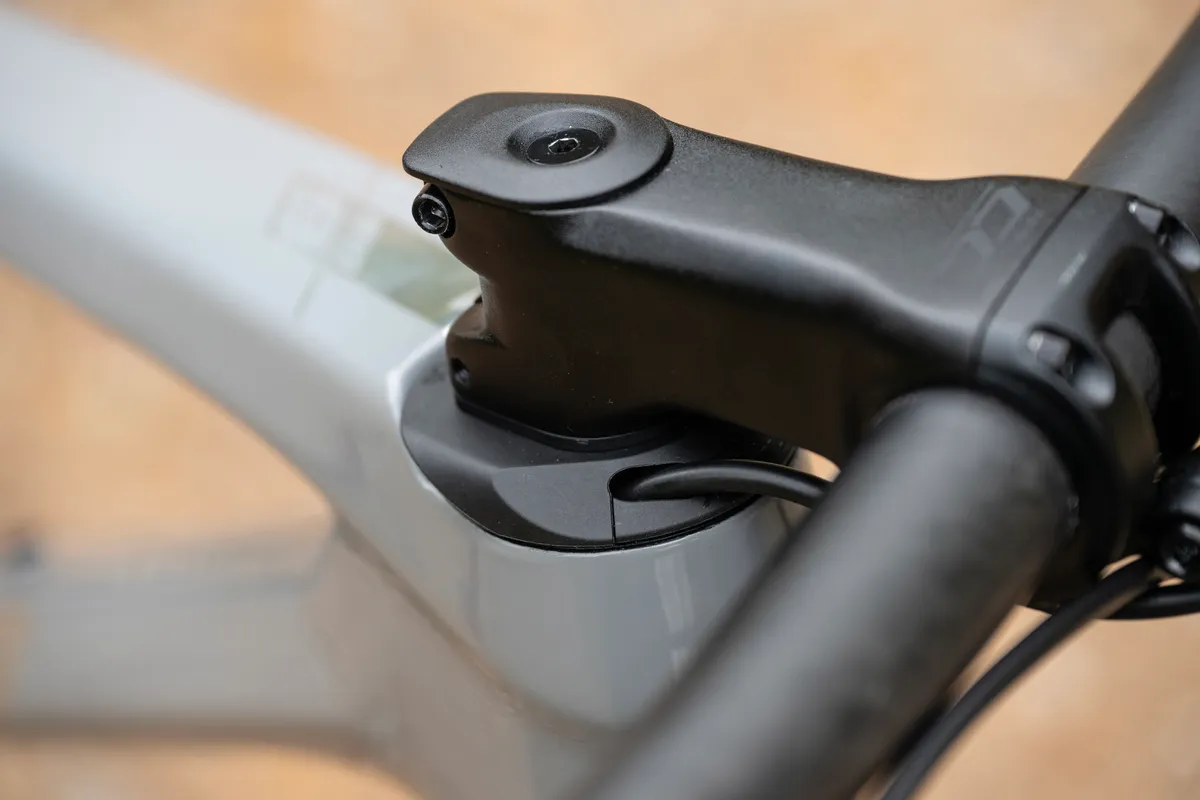
The Big.Nine also now integrates its cables and hoses via the use of a proprietary Acros headset cover, an emerging trend on cross-country bikes.
What is Bike of the Week?
Every fortnight, we'll bring you a detailed first look at one of the latest bikes (or framesets) to arrive at BikeRadar HQ – from road to commuting, gravel to enduro, and anything in between.
This is our chance to introduce the bike and everything that makes it unique before hitting the road or trails.
Head to our Bike of the Week hub for previous editions.
Revamped, size-specific geometry
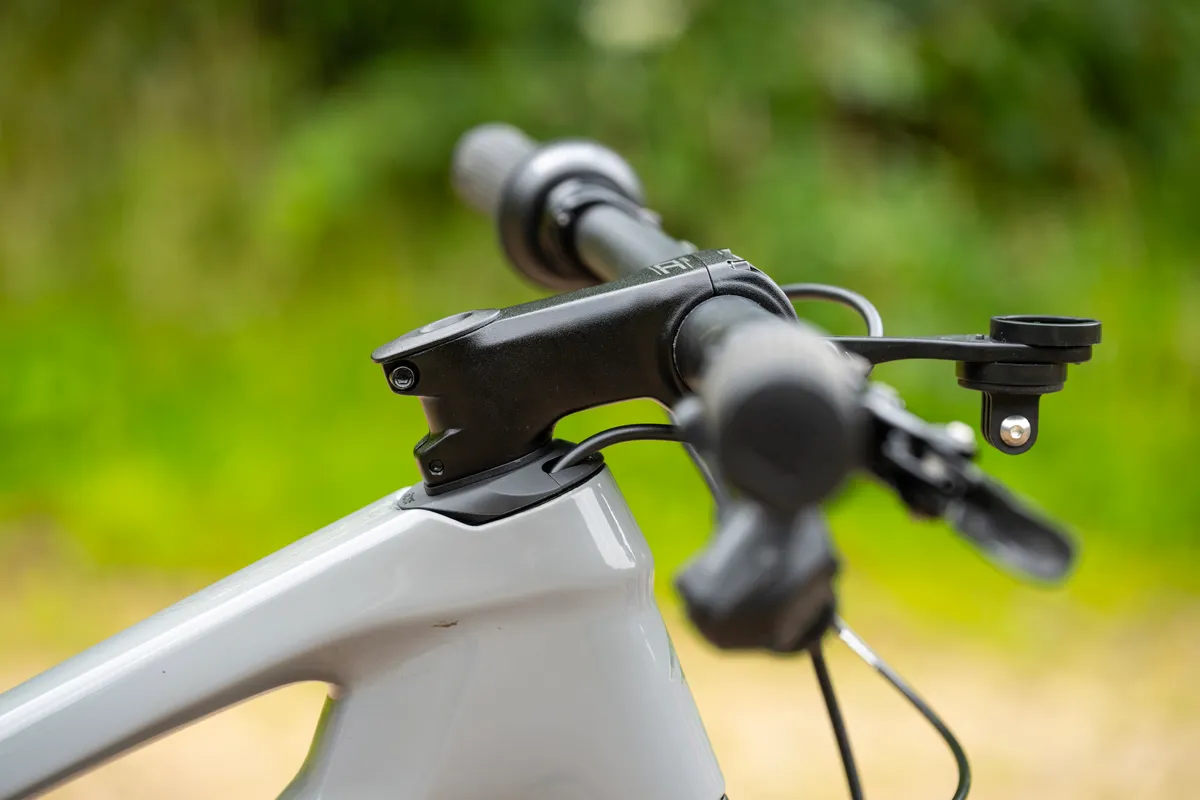
The Merida Big.Nine receives the longer, lower and slacker treatment, and moves to the brand’s Agilometer reach-based sizing system.
The system, first debuted on Merida's all-mountain and enduro bikes, pairs shorter seat tubes and stack heights with longer reaches. Therefore, you can pick between a long and stable bike without compromising on dropper-post drop or a shorter, more agile bike.
The Big.Nine’s head tube angle has been slackened from 70 degrees to 68 and the seat tube angle is now 75.3 rather than 73.5 degrees. The reach is longer at 452mm on a size medium.
Merida alters the chainstay length for each size of bike, which isn’t something many brands do. Merida says it does this to ensure a consistent ride feel across the size range.
A SRAM-heavy build
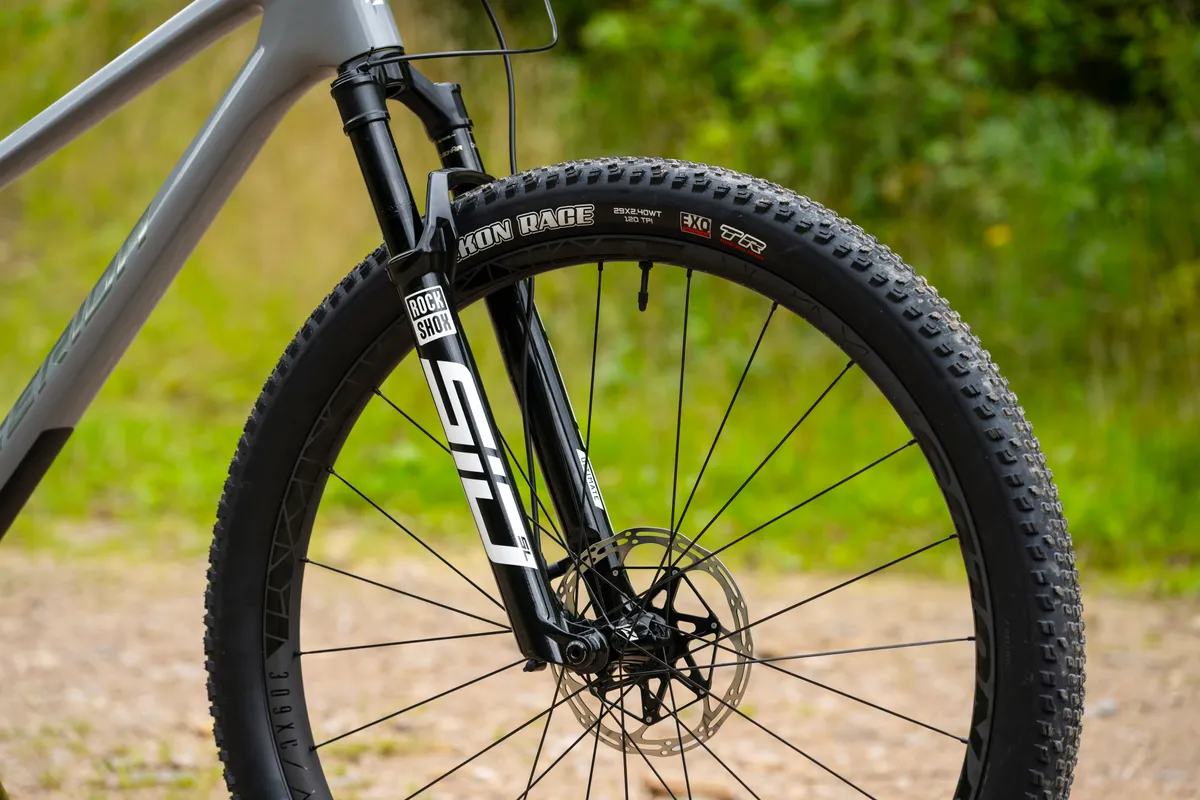
We have the range-topping Big.Nine 10k in for review, which retails for £9,000/€11,000. American and Australian pricing is to be confirmed.
Most wallets don’t stretch that far, so you’ll be pleased to know the range starts from £1,400 for the aluminium-framed Big.Nine TR 600, which features a Suntour Raidon 34 2CR fork and a Shimano CUES U6000 drivetrain.
The Big.Nine 10k we have is specced with a RockShox SID SL Ultimate fork. The RockShox fork features skinny 32mm stanchions and a heavily machined crown to save extra grams.
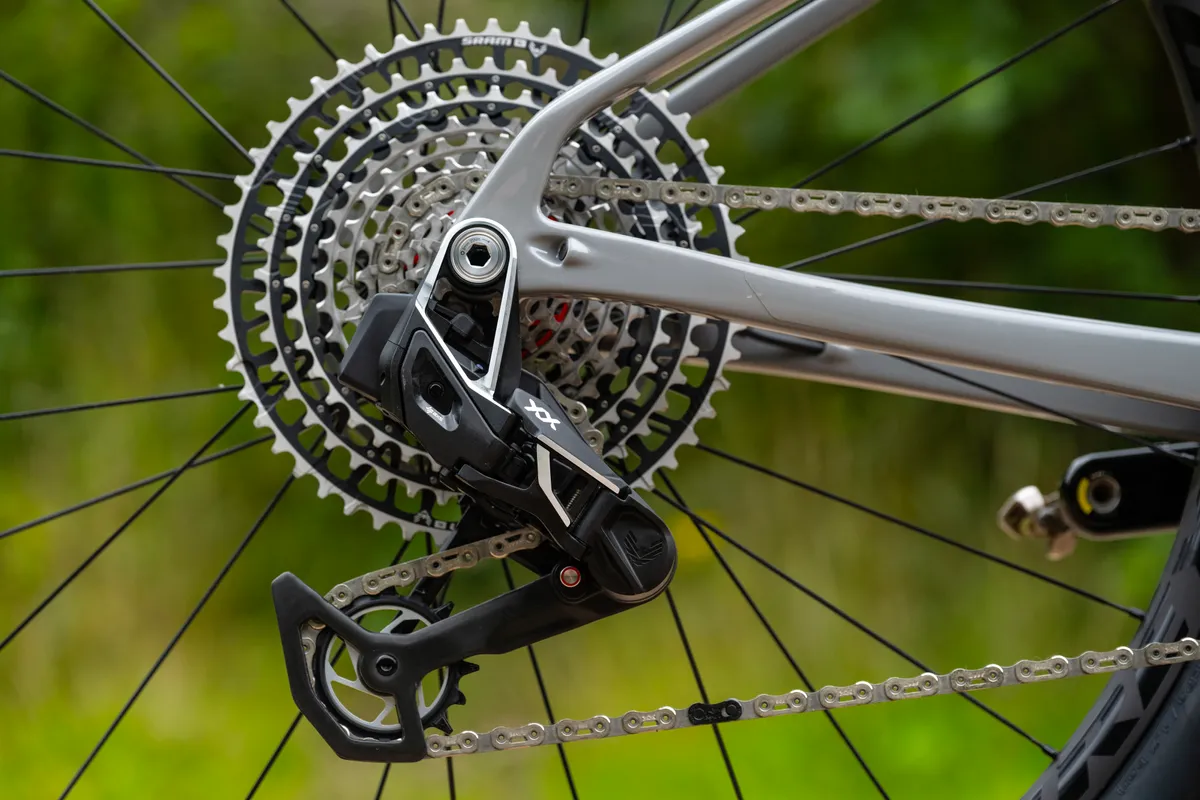
The bike also has SRAM’s latest XX T-Type Eagle Transmission. We’re starting to see T-Type increasingly specced on top-end mountain bikes, with its hanger-less design improving shifting under load. Merida specs a 34t chainring on this bike.
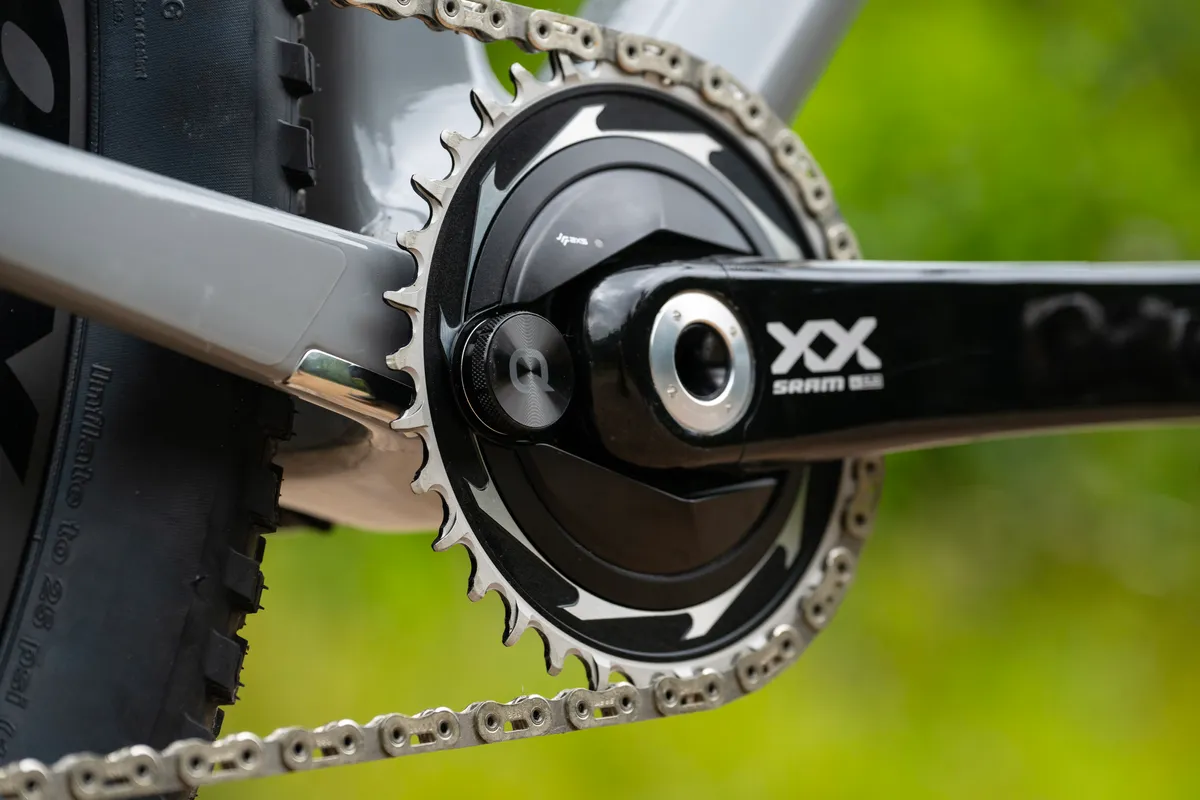
The bike also has SRAM’s lightweight Level Ultimate Stealth 2-piston brakes.
A pair of Reynolds Blacklabel 309/289 XC carbon wheels round out the build and are claimed to weigh just 1,486g. The front wheel relies on a 30mm internal rim width, with the rear a little narrower at 28mm.
Although the hubs are Reynolds’ own, you’ll find Industry Nine Hydra internals inside.

The wheels are wrapped with Maxxis Rekon Race tyres, which use the brand’s 3C MaxxTerra EXO compound.
Merida specs an FSA SL-K rigid carbon seatpost to showcase the frame’s racing pedigree, with a Prologo Scratch M5 PAS NACK saddle. You’ll find Merida's own V-mount multi-tool stored under the saddle.
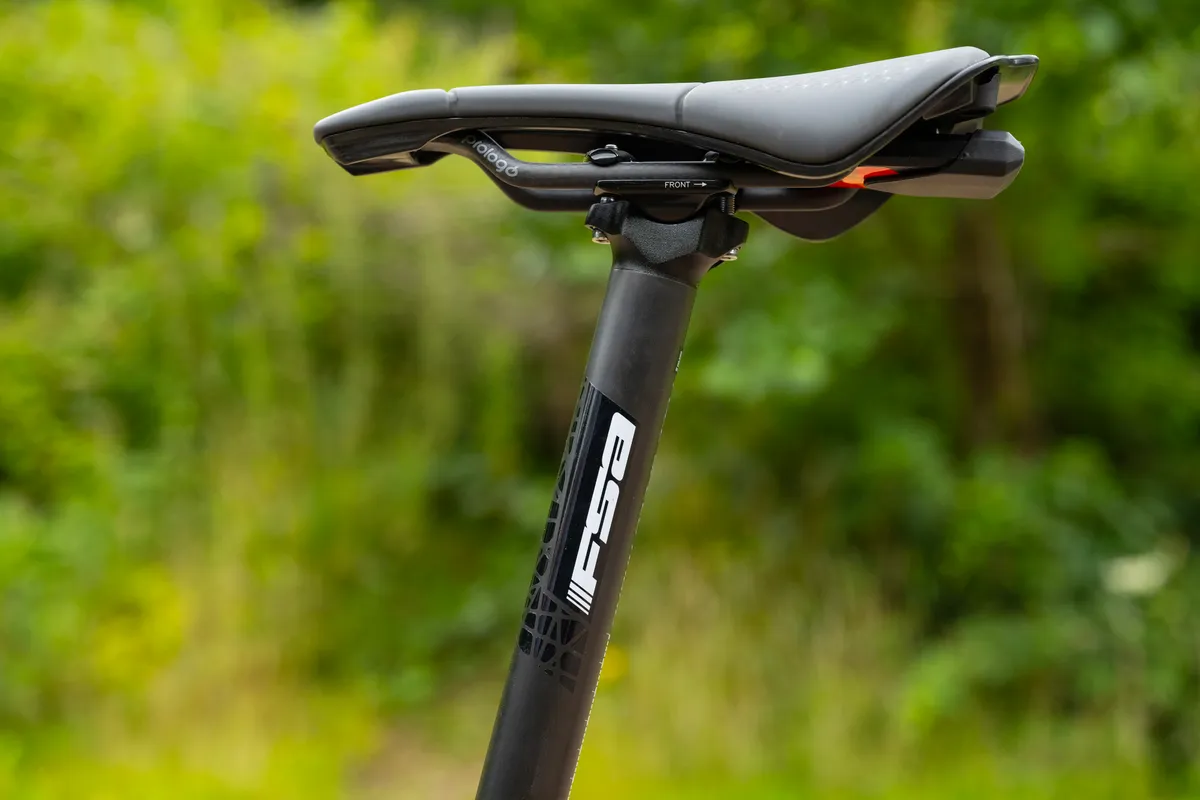
The bar and stem are Merida’s own Team CC, the bar's 760mm width paired with a racey -6-degree stem angle.
All in, the bike weighs 9.58kg in a size L.

